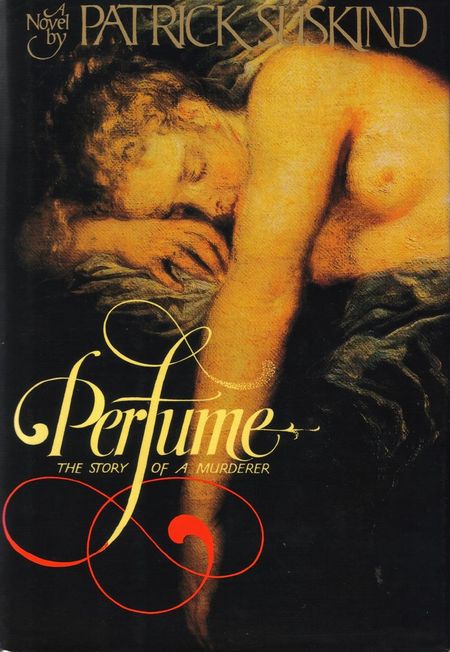In Defense of an Abominable Personage: Perfume: The Story of a Murderer by Patrick Suskind
Perfume: The Story of a Murderer (Constantin Film, 2006)
When someone tells you to pick a favorite book, and you’re the type of person who reads with a gnawing ache for a good story, selecting just one can prove daunting. Not so for yours truly.
One day my mom, out of the profound goodness of her heart, surprised me with a spontaneous visit to Half Price Books. There she gave me the gift of Perfume: the Story of a Murderer by Patrick Suskind. I fell in love with it the way you fall for the love of your life; a part of me that had hitherto hidden from my reach sewed itself into the fabric of my heart.
I wasn’t accustomed to reading books in which the implied Devil’s spawn lures you through the pages. Jean-Baptiste Grenouille, the anchor of the novel, has the misfortune of assuming this role due to his absence of a human scent. He thus embarks on a treacherously erotic quest for the perfect odor that can disguise him as an ordinary person.
Ben Whishaw as Jean-Baptiste Grenouille
Along the way, master perfumers lend him knowledge from their fragrant vats of expertise. As a reader, it’s sinfully pleasurable to indulge in Grenouille’s rapturous exploration of scent. I became besotted with the ritual of gathering multitudes of gaping roses, dumping them into a steaming vat of water and allowing their mixture to serve as the base for the perfume. So, too, does Grenouille, and when his mastery of the art defies the power of a tangible firmament, the sensation of a sinful pleasure rattles through your bones.
People tend to think of Grenouille as a lesser human due to his hunched back and perceived submission to authority. It’s chillingly validating for the reader to watch him conquer the beasts surrounding him, those who think nothing of his diligence, unaware that he has towered over their petty dreams of glory.
Having the privilege of sinking your teeth into the dark recesses of someone devoid of love and adoration humbles you. I wish more books gave readers the opportunity to give you boundless empathy for the perceived scum of the earth (barring Hitler, I suppose, though even he reportedly painted landscapes and loved dogs).
Not that I have a beef with goodhearted protagonists. All readers know they’re far from perfect as well. It’s difficult to top the sensation of reading about someone who seeks love desperately enough to destroy any sliver of humanity he harbors within himself, though. I’ll gladly go on this ride over and over. And I encourage you to do the same.
Zeta Moore’s last review for us was The Hidden People by Allison Littlewood. She is exploring work in care for individuals on the autism spectrum, and nerding out when she can.



I saw this novel when it first came out, and the historical aspect as well as the intimate (shall we say?) look at perfumery just grabbed me. The protagonist, due to his almost completely flat affect is sufficiently different from other fictional serial killers as to make him seem alien, like a Vulcan gone obsessed with scent. I, too, would recommend this book.
I don’t use the word “exquisite” too often (hardly at all, really) because it suggests something that not only can’t be equaled, but that nothing else can even come within sniffing distance of (no pun intended here). Mervyn Peake’s “Titus Groan” was my first true experience with an absolutely exquisite novel, mostly for the author’s skill with language, but also for some of the most memorable characters I’ve ever encountered. “Perfume” comes a very close second. As much as I didn’t want to feel sympathetic toward Grenouille, he generates the same sort of empathetic response from the reader as Leroux’s phantom. The atrocities of a Hitler or a Stalin or an Assad may be unforgivable even by God, but the pages of literature are strewn with tragic heroes that we love to hate and hate to love, but whose spark of humanity somehow resonates within us despite our own best intentions. In other words, we hope every Darth Vader can reawaken the Anakin Skywalker buried deep within himself. But Zeta, your next-to-last sentence leaves me wondering: do you mean you’d willingly read “Perfume” again and again, or do you hope to find another author who can present you with as memorable an experience as did Suskind? I can see myself going back to Peake’s Gormenghast, but I’m not sure I feel compelled to read “Perfume” again, simply because sometimes, the first time is the best, and that’s good enough for me.
[…] FROM <www.blackgate.com%2F2017%2F05%2F31%2Fin-defense-of-an-abominable-personage-perfume-the-story-of-a-mu…> […]